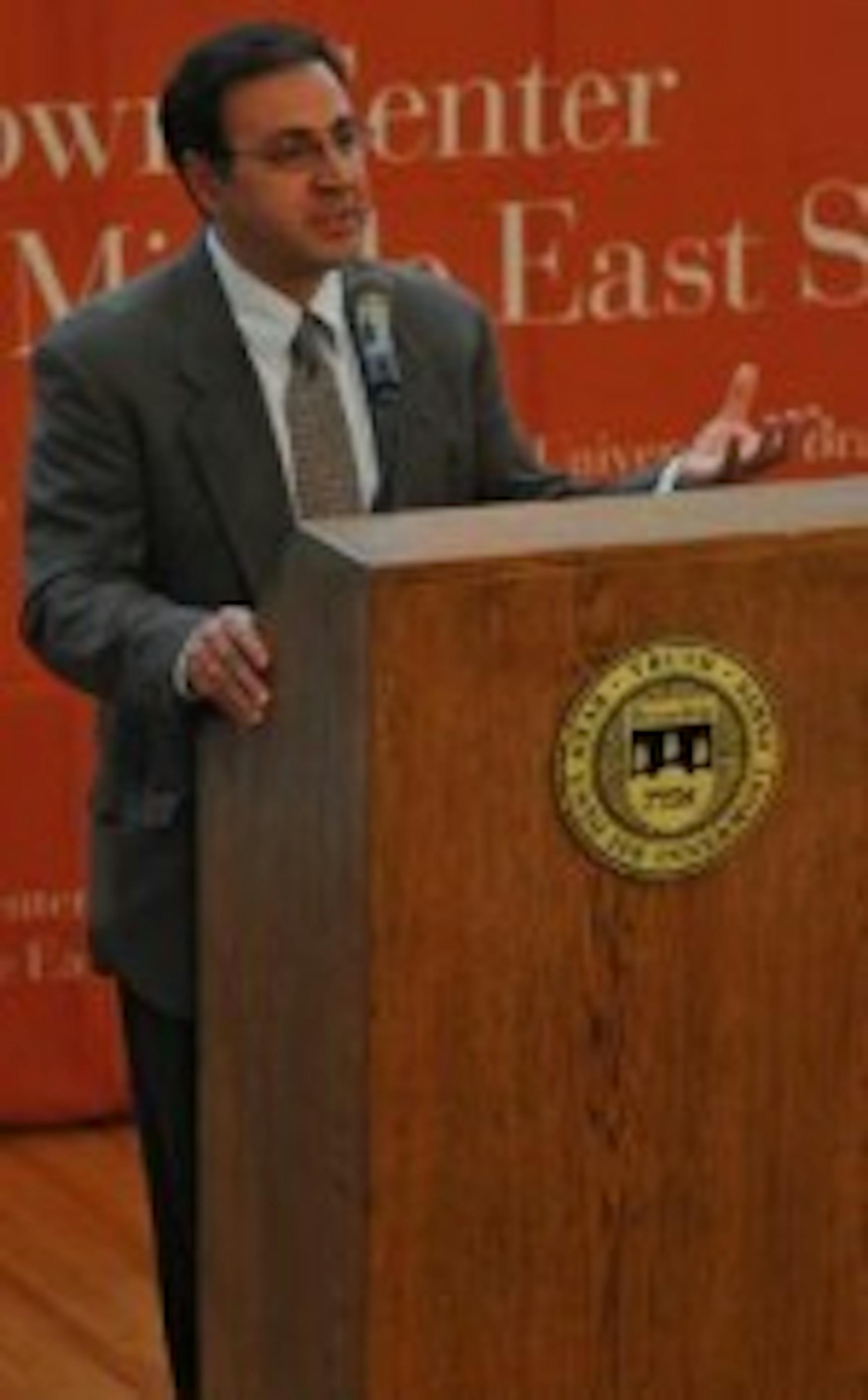Panel discusses the Middle East
Profs. Shai Feldman (POL) Nader Habibi (ECON), and Kanan Makiya (NEJS), along with Dr. Naghmeh Sohrabi and Joshua Walker, served as panelists for the Crown Center for Middle East Studies' annual event, "Round Table: Hot Topics in the Middle East," which took place last Wednesday, Sept. 1. Although the discussion explored a number of different issues in several countries, including Turkey and Iraq, the focus was often returned to how these issues impact relations with the West.Feldman, who serves as the director of the Crown Center for Middle East Studies, focused his presentation on the talks between Israeli Prime Minister Benjamin Netanyahu and President of the Palestinian National Authority Mahmoud Abbas that began last Thursday in Washington. Feldman stressed the importance of President Barack Obama's administration in reaching peace agreements in the Middle East. He pointed out that while former president George W. Bush was often accused of neglecting and not negotiating in the Middle East, Obama has not been overly successful using his own methods either. He did say, however, "At least Obama has had the courage to try and tackle the process."
After Feldman's presentation, Dr. Naghmeh Sohrabi, the assistant director for research at the Crown Center, spoke about the internal political and social situation in Iran. Sohrabi attributed the apparent lack of progress in the country to the huge exile of the journalist community in Iran, explaining that, as a result, very little that the government tried to hide makes its way out of the country.
Sohrabi's lecture was followed by Makiya's, in which he analyzed the stalemate over the formation of a new government in Iraq, and spoke about current events in Iraq. Makiya's lecture mainly focused on the improving state of affairs in the country since the U.S. invasion, with an emphasis that there is still much to be done.
Following Makiya's talk, Habibi discussed the current economic conditions in the Middle East. He explained that most Middle Eastern economies are becoming more sophisticated, and many are realizing that oil cannot be their sole source of revenue. Additionally, he said, large amounts of money from the Western World are now being invested in countries such as Saudi Arabia.
Joshua W. Walker, a postdoctoral junior fellow at the Crown Center and the final panelist, spoke about the relationship between Turkey and the West. After speaking about Turkey's increasing visibility and importance to the United States's efforts in the Middle East, Walker called to attention the fact that the Western World often misunderstands the country.
"Turkey is not as idealistic as often portrayed. The West does not understand Turkey, and we send mixed signals. Turkey experts are lacking in the United States government," he said.
After Walker's presentation, Feldman returned to the podium and concluded by asking a number of questions that he said must be answered by the Obama administration in the coming weeks and months. Feldman's questions included the level of involvement the U.S. can afford to have in the Middle East, whether the administration should introduce resolution plans or border demarcation between Israel and Palestine, and the basis for decision-making in the Middle East.
Both students and people outside the Brandeis community attended the event. When asked by the Justice who was targeted to attend this event, Benjamin Rostoker, program coordinator for the Crown Center, said that the event was advertised not only to those in the Brandeis community, but also to the "general Boston community; Washington D.C.; Europe; and the Middle East."
"This event appeals not only to those who have specialized knowledge in the Middle East," said Rostoker, "but also those who have a general interest and would like to learn more."
Many attendees of the event were impressed by the variety of topics covered from a number of different, balanced perspectives. Jonathan Snow (GRAD), a Middle Eastern Politics Ph.D. student at Brandeis, praised the event, saying, "I would come no matter what-what the Crown Center offers is different perspectives, whether you are Iranian, Israeli, or Arab.



Please note All comments are eligible for publication in The Justice.